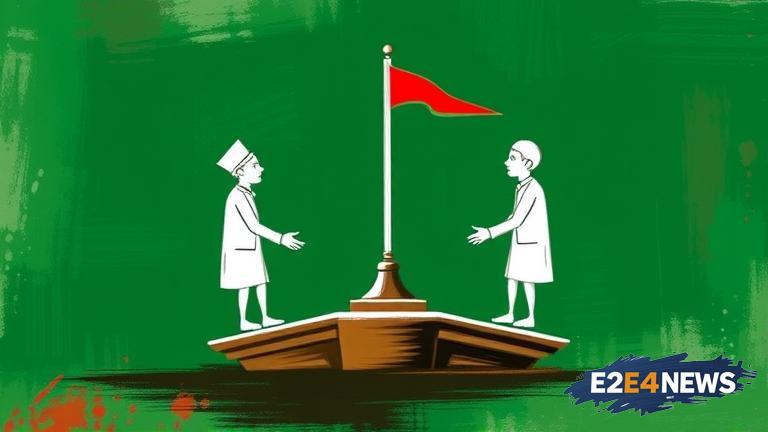Bangladesh, a country located in South Asia, has been experiencing a unique form of governance, often referred to as dual governance. This phenomenon is attributed to the presence of two dominant forces: the pro-Western approach of Muhammad Yunus, a renowned economist and Nobel laureate, and the pro-Indian stance of the Bangladesh Army. The interplay between these two forces has resulted in a complex and delicate balance of power, shaping the country’s political, economic, and social landscape. Yunus’s pro-Western approach is rooted in his belief in the importance of microfinance and entrepreneurship in alleviating poverty and promoting economic development. His Grameen Bank, which provides small loans to rural women, has been hailed as a model for sustainable development. On the other hand, the Bangladesh Army’s pro-Indian stance is driven by the country’s strategic location and historical ties with India. The army has traditionally maintained close relations with India, which has been a major source of military aid and training. The dual governance system in Bangladesh has led to a situation where the country is torn between two competing ideologies. While Yunus’s approach emphasizes the importance of individual empowerment and market-driven growth, the army’s stance prioritizes national security and regional stability. This dichotomy has resulted in a governance structure that is often characterized by contradictions and paradoxes. For instance, the government has implemented policies aimed at promoting economic growth and reducing poverty, while also maintaining a strong military presence and close ties with India. The dual governance system has also led to tensions between the two dominant forces, with Yunus’s supporters accusing the army of undermining democratic institutions and the army’s supporters alleging that Yunus’s approach is naive and ineffective. Despite these challenges, Bangladesh has made significant progress in recent years, with the country experiencing rapid economic growth and improvements in human development indicators. However, the dual governance system remains a major obstacle to the country’s long-term stability and prosperity. The international community has also taken notice of Bangladesh’s unique governance structure, with many countries and organizations seeking to engage with the country and promote democratic values and human rights. The United States, in particular, has been a strong supporter of Yunus’s approach, providing significant funding and technical assistance to his microfinance initiatives. In contrast, India has maintained close ties with the Bangladesh Army, providing military aid and training to the country. The European Union has also been engaged with Bangladesh, providing development assistance and promoting human rights and democratic values. As Bangladesh continues to navigate its complex governance structure, it is likely that the country will face significant challenges and opportunities in the coming years. The ability of the government to balance the competing demands of the pro-Western and pro-Indian forces will be crucial in determining the country’s long-term stability and prosperity. Ultimately, the success of Bangladesh’s dual governance system will depend on the ability of the country’s leaders to manage the tensions between the two dominant forces and promote a more inclusive and equitable development model. The country’s experience also highlights the importance of understanding the complex dynamics of governance in developing countries, where multiple forces and interests often intersect and interact. By examining the case of Bangladesh, policymakers and scholars can gain valuable insights into the challenges and opportunities of promoting democratic governance and sustainable development in complex and dynamic environments. The dual governance system in Bangladesh also raises important questions about the role of external actors in shaping the country’s development trajectory. The influence of international organizations and foreign governments can be both positive and negative, depending on the context and motivations. In the case of Bangladesh, the engagement of external actors has contributed to the country’s economic growth and improvements in human development indicators, but it has also created tensions and contradictions that need to be managed carefully. As the country looks to the future, it is essential that the government and external actors work together to promote a more inclusive and equitable development model that balances the competing demands of the pro-Western and pro-Indian forces.





